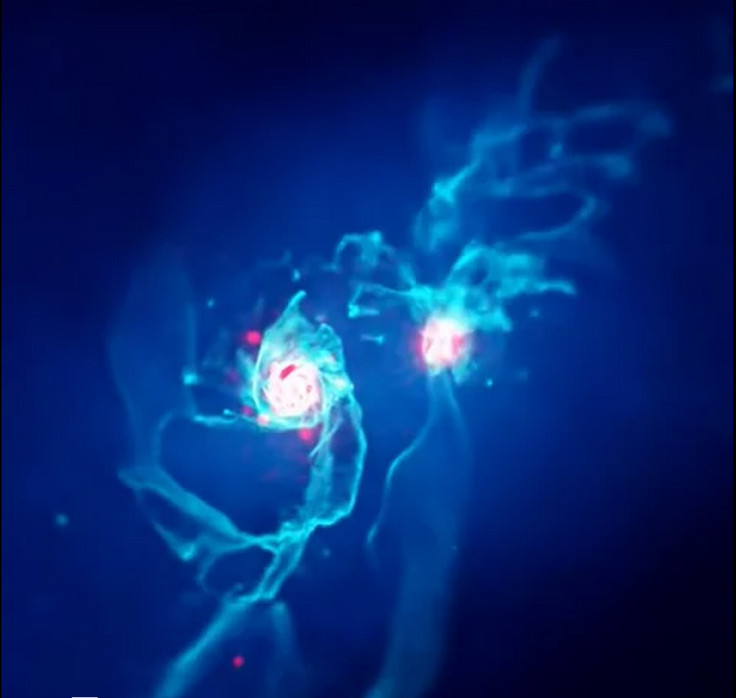Milky Way 'to be Devoured by Andromeda Galaxy' in Five Billion Years

The Milky Way is expected to get gobbled up by a huge galaxy nearby in about five billion years, scientists have said.
Large galaxies have been discovered devouring smaller ones instead of creating their own stars, a study of more than 22,000 galaxies has shown.
"All galaxies start off small and grow by collecting gas and quite efficiently turning it into stars," research leader Dr Aaron Robotham, from The University of Western Australia, said. "Then every now and then they get completely cannibalised by some much larger galaxy."
Even our own Milky Way is at tipping point and will eventually start feasting on other galaxies.
"The Milky Way hasn't merged with another large galaxy for a long time, but you can still see remnants of all the old galaxies we've cannibalised," said Robotham. "We're also going to eat two nearby dwarf galaxies, the Large and Small Magellanic Clouds, in about four billion years."
However, the Milky Way is expected to get it's comeuppance in about five billion years when it merges with the Andromeda Galaxy, a much bigger galaxy, which is sure to be the dominate force.
According to Robotham, the reason for the slowdown of star formation in larger galaxies was because of extreme feedback events (radio, microwaves, infrared, optical, ultra-violet, X-ray and gamma ray wavebands) from the active galactic nucleus, a compact and bright region at the centre of the galaxy.
As the galaxies grow in size, their gravitational pull increases, making it easier for them to draw in their neighbours.
It is believed that, ultimately, all the galaxies will merge into a few super-giant ones, although that will be in a few billion years.
"If you waited a really, really, really long time that would eventually happen but by really long I mean many times the age of the universe so far," Dr Robotham said.
© Copyright IBTimes 2025. All rights reserved.





















